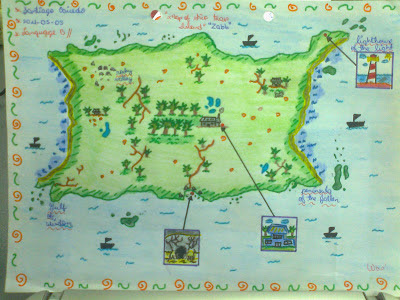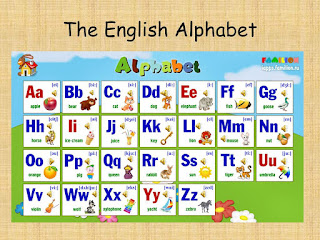Karen Wigby, a Life devoted to EFL Teaching. An Interview (1)
 |
| Ms. Karen Wigby de Nieto |
I met Ms. Wigby several years ago when I was part of the faculty of Universidad Casa Grande. She was my boss there and I still recall the first impression I had when she interviewed me as part of the hiring process: her speaking was calm and soft revealing a well-balanced person, but I could also see she was also strict and demanding. I was not wrong. She was always there, seeing that everyone was doing their job and making sure it was done right, but always with a kind smile on her face.
 Ms. Karen, as everyone calls her, has been an educator for many years and has been director of the English departments of several prestigious institutions of Guayaquil such as Colegio La Moderna and more recently Universidad Casa Grande where she worked from June 2001 – Sept 2013 in the following programs and positions:
Ms. Karen, as everyone calls her, has been an educator for many years and has been director of the English departments of several prestigious institutions of Guayaquil such as Colegio La Moderna and more recently Universidad Casa Grande where she worked from June 2001 – Sept 2013 in the following programs and positions:
Masters Program in Higher Education: Coordinator and professor, July 2007-December 2008, May 2010-present. Materias dictadas: Reflexión en la Acción y El proceso de investigación. International Education undergraduate degree program aimed at graduating teachers of English as a Foreign Language with a multicultural perspective: coordination, curriculum development, professor, thesis coordinator (2001-2013). Online program currently awaiting final government authorization.
Masters Program in Higher Education: Coordinator and professor, July 2007-December 2008, May 2010-present. Materias dictadas: Reflexión en la Acción y El proceso de investigación. International Education undergraduate degree program aimed at graduating teachers of English as a Foreign Language with a multicultural perspective: coordination, curriculum development, professor, thesis coordinator (2001-2013). Online program currently awaiting final government authorization.
TEFL
Certificate Extension Program – Coordinator, professor. The
TEFL program is a 144 hour program offering initial training in teaching
English as a foreign language. Program
is offered face-to-face and online.
(2002-2013)
Ecuadorian
Ministry of Education and UCG Agreement (2007-2011) Professional development program benefitting 480
public school English teachers: Coordinator.
Evaluation
of the National English Program for the Ministry of Education -
member of the team for the design of the study and its implementation. (January-November 2009)
A teacher trainer and frequent speaker in workshops and congresses she recently retired from administrative duties but is still involved in the neverending and always rewarding teaching labor.
This interview is offered in two parts.
1. Why did you choose to become an educator, in particular one that is
outside her country?
When
I was in the university I decided to major in political science with minors in
languages and teaching high school social studies. I realized that I loved teaching when I did
my practicum the last semester of my Senior year. Then I married an Ecuadorian and came to
Ecuador. As a certified teacher from the
US I easily got a job at the Colegio Americano in the International
Program. It wasn’t long before I
realized that teaching EFL was my future here in Ecuador so I started working
on my masters in TEFL when my husband went back to Houston for his Masters in
Chemical Engineering.
So
my university teaching practicum got me hooked on teaching and Cupid lured me
from the USA to the wonderful, adventure/opportunity I’ve had here in Ecuador
teaching English. I didn’t consider myself to be an educator
until I began teaching teachers first as a high school English coordinator and
later in U Casa Grande. I became an
educator because so many of the people who were teaching English were only
English speakers. It was necessary to
provide them with basic teaching tools ASAP for helping students learn English.
2. How different was EFL teaching in Guayaquil, and in Ecuador by
extension, in the time you arrived here from what it is now?
Teaching in Ecuador was different
from teaching in the US in the following ways: (1) classes were larger, (2) all
students thought they deserved 20/20 all the time (I rarely gave 20’s – this is
the difference between testing information and performance testing), (3) cheating
drove me crazy, (4) I expected students to be self-disciplined and they
expected me to be a policeman, (5) instead of calling me Mrs. Nieto everyone
called me Miss Karen which was strange and seemed too familiar, (6) instead of
giving personal opinions backed with evidence in essays, they would repeat the
book’s opinion or Miss Karen’s opinion, (7) I would announce the topics for an
exam and Ss asked for Cuestionarios and memorized the answers, (8) sometimes
WHO you knew (palanca) was more important than WHAT you knew – environment
where contacts were more important than merit/knowledge for getting ahead, (9)
teaching was not a respected profession, (9) anyone who could speak English was
hired to teach English.
Teaching EFL in Ecuador has changed
over the last 50 years in the following ways:
(1) from a linguistic focus to a
communicative focus – from KNOWING verbs/vocabulary to USING
verbs/vocabulary for communicative purposes.
I think Peter Harrington and COPEI had a lot to do with that, as well as
U Casa Grande. The COPEI graduates
coming into the TEFL program have changed over the last 12 years from students
who learned in classes dominated by TTT to students who learned with lots of
STT through pair work and peer assessment.
Since Ts teach as they were taught, it was clear to me that the TEFL
program and COPEI were transforming the way English was taught and
learned. It was really exciting to
perceive the change.
(2) Correa’s support for learning English
has had a huge impact – setting teacher standards (something Peter Harrington
and I always hoped for), making teaching a more respected profession, providing
scholarships to learn English, improving both private and public education with
the TOEFL minimum requirement of B2 for teachers, the focus on action research
and academic qualifications.
(Continued next entry)
(Continued next entry)



Comments